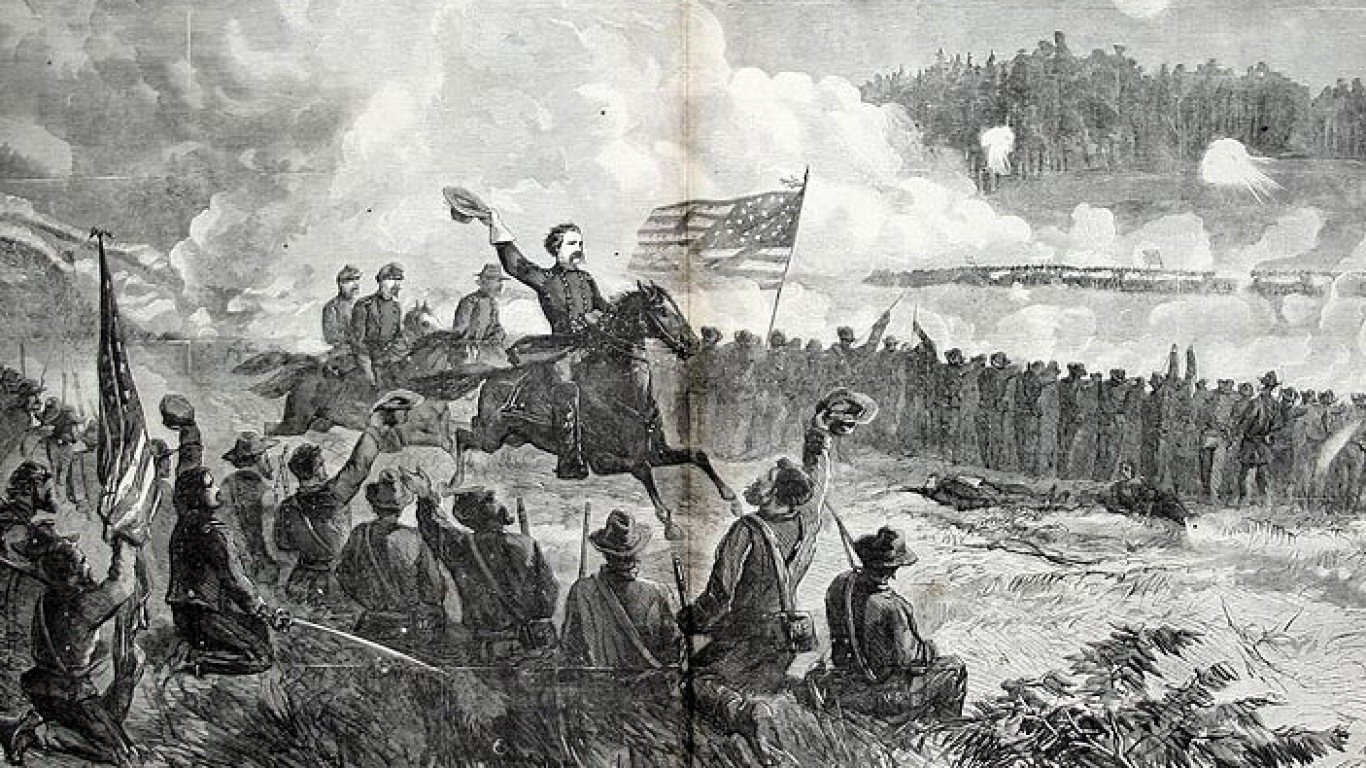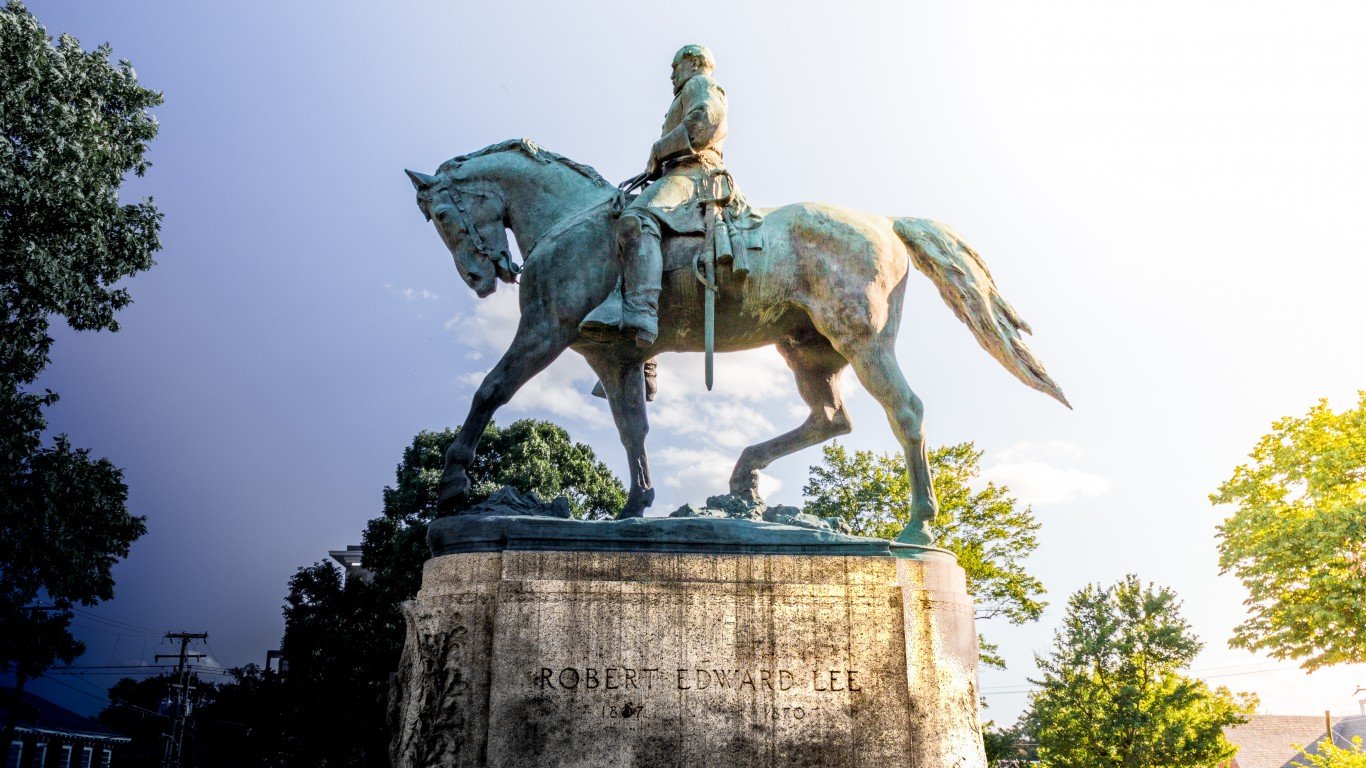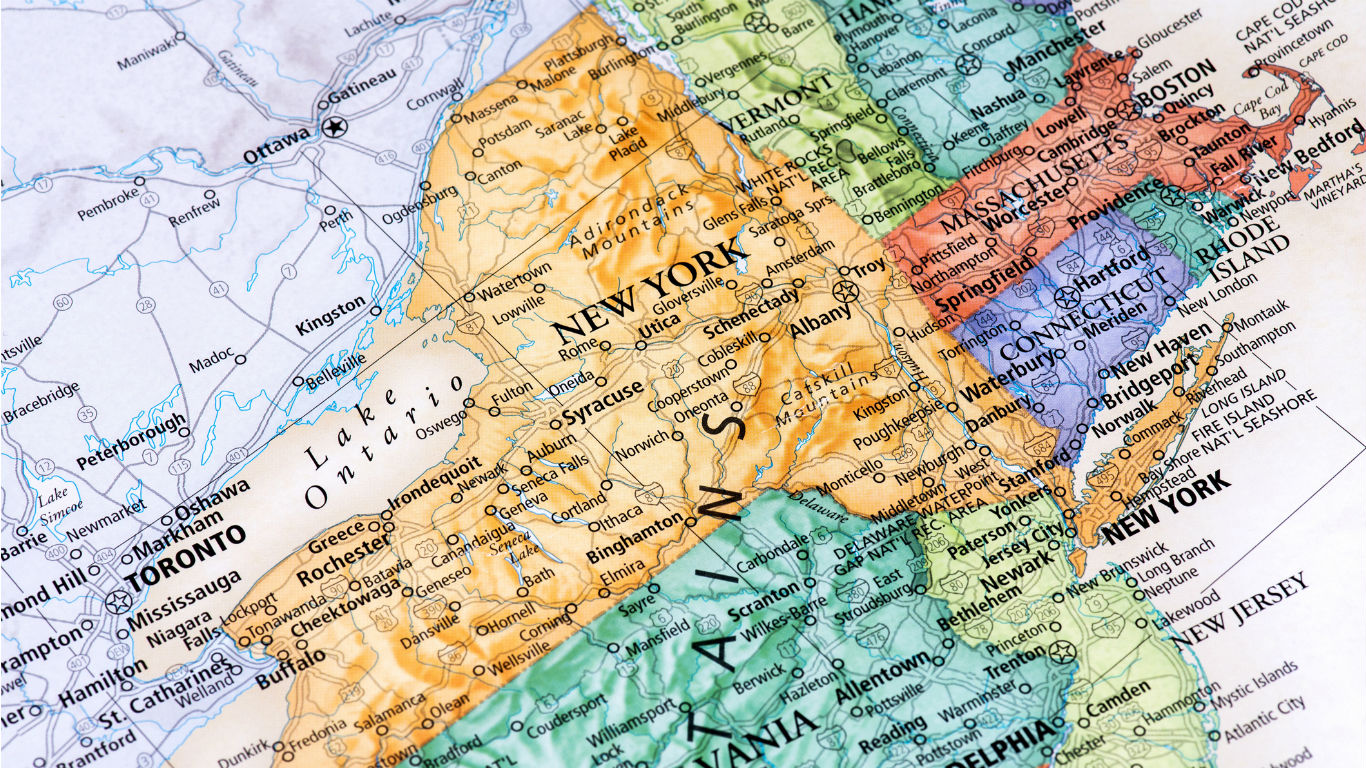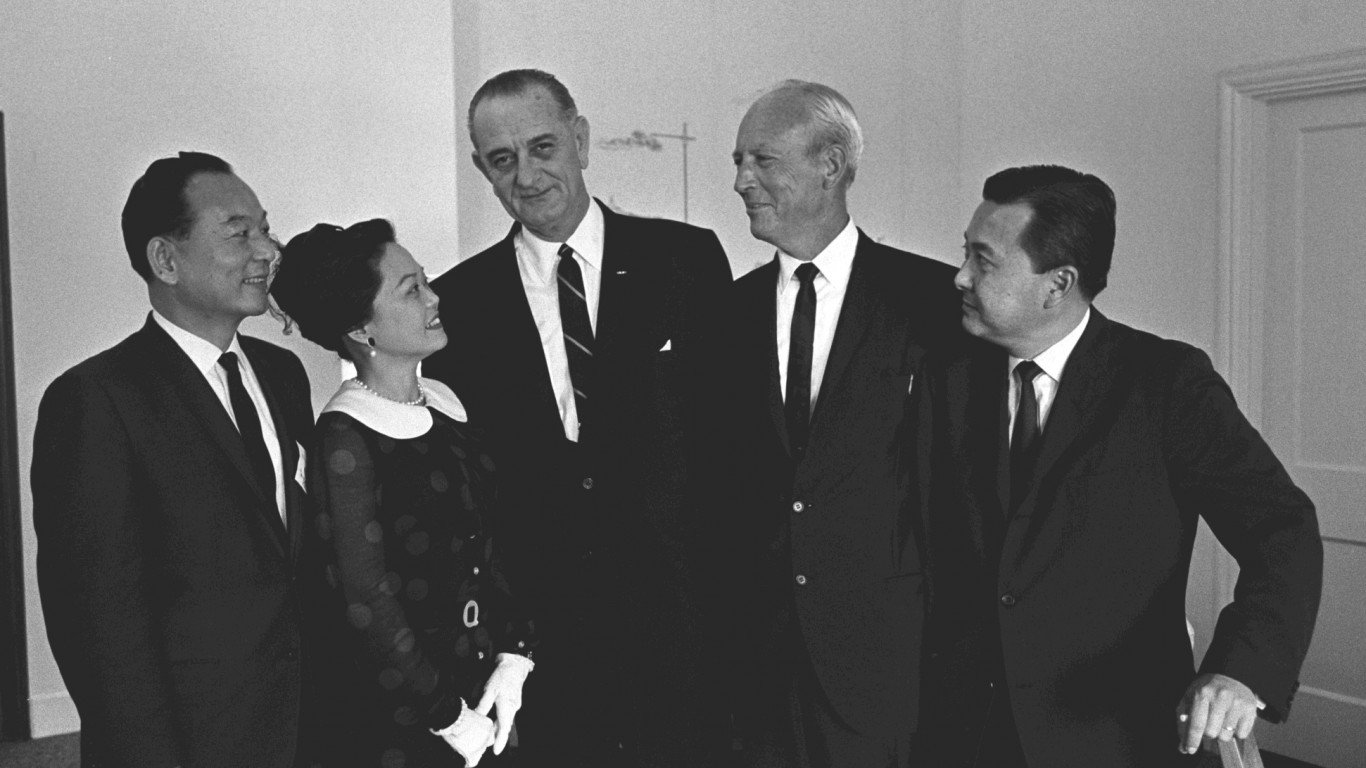Memorial Day is named because it is the day we remember those who died in war defending the United States. It was once a day observed by introspection and solemnity in communities across the country, and it remains a dignified occasion at America’s military bases here and overseas.
As the nation prepares to observe the holiday, 24/7 Tempo has compiled a list of things you didn’t know about the holiday (but should), using resources such as the U.S. Department of Veteran Affairs.
Memorial Day was originally called Decoration Day. Its founding is credited to John A. Logan, a former Union Army general and advocate for Civil War veterans. He supported a nationwide day of commemoration for those who had died to preserve the Union during the Civil War. Since that time, the day has become an occasion to remember all of those who have fallen during America’s wars. Speaking of those who defended the Union, the Lincoln Memorial was dedicated on Memorial Day in 1922 to Abraham Lincoln.
The Memorial Day weekend has become the gateway holiday to summer, when people enjoy recreational activities or host barbecues, and are less engaged with the original intention of the holiday. This is a function of a loosening of the connection between American society and the military. A Council on Foreign Relations story in 2018 said the military comprises fewer than 1.3 million people, or less than 0.5% of the U.S. population. Many of the service members live in American’s biggest military cities.
As the size of the military shrinks, the connections between it and the civilian population it protects have become more distant. This has become more apparent as the number of veterans who fought in the Vietnam War and World War II, two of America’s most expensive wars, pass away.
To compile our list of the things you didn’t know about Memorial Day (but should), 24/7 Tempo reviewed information from sources such as the Veterans Affairs website, history.com, americanliterature.com, poets.org, and media sources such as the New York Times and National Public Radio.

1. It started as a response to the Civil War carnage
In 1868, three years after the end of the Civil War, several Union Army veterans established a day to honor those who had fallen during the nation’s deadliest conflict. The crowd attending the first Memorial Day ceremony at Arlington National Cemetery in Washington, D.C., numbered about 5,000 people.

2. A former general, not the president, made the day a holiday
A retired Union Army major general, John A. Logan, the commander-in-chief of a veterans’ group, which was called the Grand Army of the Republic, set the date of the holiday for May 30.

3. It used to be called Decoration Day
The day we now observe as Memorial Day was originally called Decoration Day so that the nation could place flowers on the graves of those fallen in battle, who in Logan’s words “now lie in almost every city, village and hamlet churchyard in the land.”

4. This is why it’s celebrated in May
May 30 was chosen for the holiday because it was not the anniversary of any particular battle.

5. The date may have been chosen because of the weather
Some historians believe that the date for the holiday was selected to ensure that flowers across the country would be in full bloom by that time.

6. Freed slaves held the first ceremony
Freed slaves are believed to have held the first event commemorating war dead from the Civil War. Yale University historian David W. Blight said African-Americans held commemorations in the spring of 1865, after Union Army soldiers captured Charleston, South Carolina. Blight said the largest of these commemoration events occurred on May 1, at a racecourse and jockey club in Charleston that was used to house Union prisoners who had died from disease. The bodies were exhumed and given proper burials. The freed slaves held a procession, with people carrying baskets of flowers, wreaths and crosses, and singing patriotic songs.

7. Memorial Day started honoring all veterans after World War I
Decoration Day, or Memorial Day, was begun to honor those who died during the Civil War. But once the United States entered World War I, the holiday was broadened to commemorate American soldiers who died in all wars.

8. “Taps” was actually a goodnight song
The familiar, mournful strains of the solitary bugler were first played during a burial ceremony for a fallen Civil War soldier in 1862. Both the Union and Confederate armies performed the song at funerals, and it has become a tradition to play it at military funerals and at ceremonies acknowledging the unknown soldier on Memorial Day. The song, whose composer is not known, is also used to signal lights out for those serving in the military.

9. You’re supposed to fly the flag at half-staff until 12 p.m.
On Memorial Day the American flag should be flown at half-staff from sunrise until noon only, then it is to be raised to the top of the pole until sunset, to honor the nation’s war heroes.

10. You are supposed to pause for a minute of silence at 3 p.m.
The humanitarian organization “No Greater Love” conceived the idea of a “National Moment of Remembrance” to remind people of the real reason we observe Memorial Day. Americans are asked to maintain a minute of silence at 3 p.m. local time to honor those who died for our country. President Bill Clinton signed the National Moment of Silence Act into law in 2000.

11. Bikers make the day a big, big deal in D.C.
The veterans advocacy group Rolling Thunder has made a tradition of organizing a huge annual motorcycle ride through Washington, D.C., for more than 30 years on Memorial Day. But this year will be the last time they will do so because of rising expenses associated with the event, such as security and cleanup. Rolling Thunder said it costs $200,000 to pay for the event.

12. You wear artificial poppies because of a poem
On Memorial Day, veterans sell artificial poppies that are worn as a symbol of remembrance. The tradition originates from the words in the poem “In Flanders Fields” that was penned by John McCrae, a Canadian doctor who served during World War I. McCrae was struck by the color contrast of the red poppies against the bleak battle-scarred landscape of Belgium. The poem’s immortal opening stanza reads: “In Flanders fields the poppies blow
Between the crosses, row on row.”

13. Memorial Day chosen for dedication of the Lincoln Memorial
Memorial Day, May 30,1922, was selected as the day when the Lincoln Memorial was dedicated to President Abraham Lincoln, whose assassination occurred just as the Civil War was ending.

14. Some southern states honor a Confederate Memorial Day
Women’s groups in the South started to decorate the graves of the Confederate fallen even before the Civil War was over. In 1886, the Ladies Memorial Association of Columbus, Georgia, formally resolved to commemorate the dead once a year. Southern commemoration ceremonies were not held on a specific day, with remembrance events held during the spring and summer. Today, nine southern states officially recognize a Confederate Memorial Day.

15. The official birthplace of Memorial Day is in New York state
Many communities throughout the United States held memorial gatherings in the 19th century, and many towns lay claim to being the birthplace of Memorial Day. But only one town has been declared the official birthplace of the holiday. That would be Waterloo, New York, which the federal government declared in 1966 to be the official birthplace of Memorial Day. Waterloo first celebrated the day on May 5, 1866. The town was selected because it hosted an annual event during which businesses closed and residents adorned the graves of soldiers with flowers and flags.
16. Other cities claim to be the first place the holiday was celebrated
Waterloo, New York, may have the federal imprimatur as the first town to celebrate Memorial Day, but other American municipalities beg to differ. Boalsburg, Pennsylvania, traces its claim to a gathering of women in 1864 to mourn those who were killed in the Battle of Gettysburg, which took place 125 miles southeast of the town the prior year. Folks in Carbondale, Illinois, cite a parade in 1866 that was led, in part, by the same John Logan who would advocate for an official Memorial Day two years later. In the South, two towns in Mississippi and Georgia named Columbus each claim they were the first to formally remember the war dead.

17. It became a federal holiday in 1971
Americans supported Decoration Day immediately in 1868, and by 1890, every state had adopted it as an official holiday. However, it was not officially recognized nationwide until Congress declared it a national holiday in 1971.

18. There was a movement to shift the holiday back to May 30
Decoration Day or Memorial Day had always been observed on May 30. That was changed after the Uniform Monday Holiday Act of 1968 went into effect, moving Memorial Day to the last Monday in May. In effect, that gave Americans a long weekend and the unofficial start to summer. Veterans’ groups have opposed this idea because it detracts from the original intention of the holiday — to honor the nation’s war dead. They’ve lobbied to return the day to May 30. Among those who had supported the idea was Hawaiian senator and World War II hero Daniel Inouye. Until his death in 2012, Inouye introduced legislation in support of the change at the start of every congressional term.

